Interviews
We’re more divided as a region than we were a 100 years ago
India decided to pull out of the 19th Saarc summit that was slated to be held in Islamabad in November in the wake of a terrorist attack in the town of Uri in Indian-held Kashmir on September 18.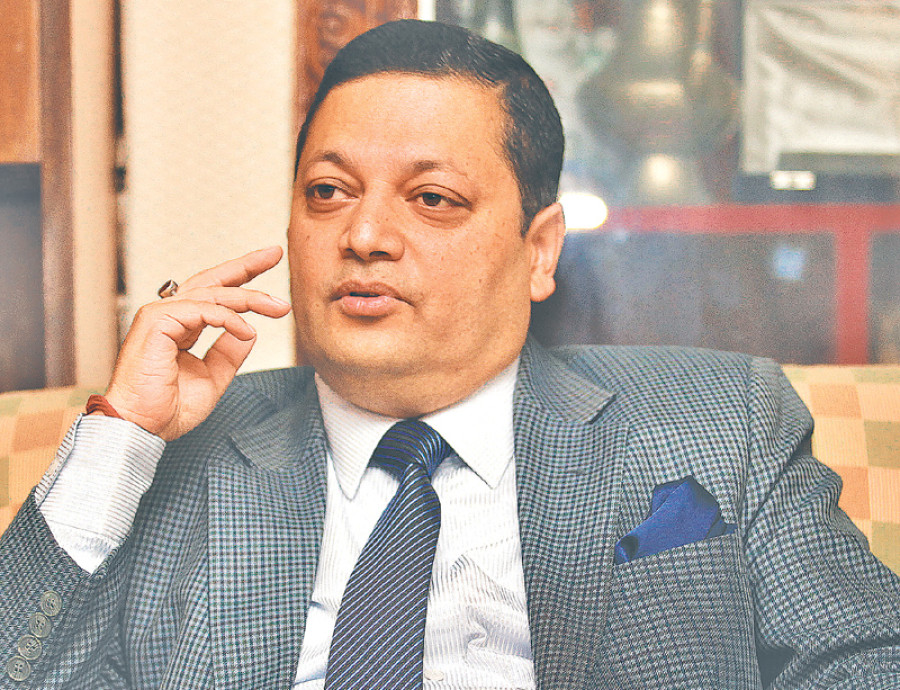
Anil Giri & Apekshya Shah Rana
India decided to pull out of the 19th Saarc summit that was slated to be held in Islamabad in November in the wake of a terrorist attack in the town of Uri in Indian-held Kashmir on September 18.
A few other Saarc members followed suit. Subsequently, Pakistan formally announced the postponement of the summit. Yesterday, the Ministry of Foreign Affairs of Nepal issued a press release regretting the absence of a conducive environment to hold the summit and informing that it will start consultations with all member states to reschedule it. Moreover, the recent “surgical strikes’’ that India claimed it conducted on the other side of the line of control (LOC)—the de-facto border between India and Pakistan—in order to ‘‘thwart attacks’’ have escalated tensions between the two nuclear-armed rivals. All this has raised anew the question of whether Saarc is still relevant. Anil Giri and Apekshya Shah Rana spoke to Nishchal Nath Pandey, the Director of the Centre for South Asian Studies, about the current Indo-Pak conflict, the role that Nepal as the current chair of Saarc can play and the faultlines in Nepal’s foreign policy.
Now that the summit has been put off, what role do you think Nepal should be playing as the current chair of Saarc?
Nepal, as the current chair of Saarc, should be fulfilling a greater responsibility to defuse the tension in the region. Our prime minister should visit Delhi and Islamabad and make efforts towards rescheduling the date for the Saarc summit, like the way the Bangladeshi prime minister had visited India and Pakistan after their nuclear tests in 1998. So as we are chairing the Saarc, we have a special obligation to make sure that the regional organisation is not “dead”, as some Indian analysts are already claiming.
Although India has conducted raids across the LOC in the past, it has never announced them so publicly like it has done this time. What do you make of this?
After the Uri attack, there was a lot of pressure within India to act. And there is growing solidarity against cross-border terrorism in the international arena because many countries around the world have been attacked recently. So Modi, being an adventurist and a decisive leader, made it clear that cross-border terrorism is not going to be tolerated. The implications of this new Indian templates and rapid deterioration of Indo-Pak relations are being felt across Asia.
Today what we see is not only an Indian army action, but South Asia in a difficult predicament. As far as the Saarc summit is concerned, it has been postponed many times in the past—in the 31 years of Saarc history we have only had 18 summits. Moreover, the decision to hold Saarc summits once in two years instead of every year was also a mistake.
To rectify this, we need to reactivate the Saarc process. I think the Saarc secretariat needs to wake up to regional realities. We need to elevate the position of the Saarc secretary general to that of the Asean secretary general, some of whom are former foreign ministers and deputy prime ministers.
With some Saarc countries deciding to withdraw from the summit immediately after India’s decision to do so, do you see additional faultlines within Saarc? Where does that leave our foreign policy?
According to Saarc’s Charter, if a single member state decides not to attend the summit, the event is automatically postponed. So why was there a need for other states to announce that they will not participate? As India tries to leverage on the diplomatic cornering of Pakistan, it has different expectations from smaller neighbours. We must understand this phenomenon.
They are just ganging up against Pakistan. There is now a clear tendency within India to have a Saarc minus Pakistan, and it is giving greater priority to Bimstec (Bay of Bengal Initiative for Multi-Sectoral Technical and Economic Cooperation) and Brics.
India wants to isolate Pakistan in the region and it has been successful to a certain extent. India-Pakistan conflict is not new and we have chosen to remain neutral in the past. But at present we are not only the host of the Saarc secretariat but also its chair. The fact that even the secretary general is a Nepali leaves Nepal’s foreign policy in a very difficult situation.
As the chair of Saarc, it is in our best interest to have the next summit soon. Moreover, Indo-Pak conflict can push the whole regional arrangement to square one, which will make all the states suffer. So Nepal should try to make efforts to defuse the conflict and remind member countries that Saarc has been a platform in the past where India and Pakistan have thrashed out their differences. We should keep stressing for an active Saarc.
But many consider Saarc an unsuccessful regional arrangement. And Bimstec does not even have the same level of cooperation that Saarc does. What does that say about regionalism in South Asia?
Saarc touches upon every segment of human life from climate change to human trafficking. But it has not made tangible achievements in any sector, which has been one of its weaknesses. Unlike Asean and the European Union, it does not have the level of political authority required by a regional body. Saarc is the only regional platform in South Asia, so if it fails, we will quickly need to resurrect a similar organisation.
A hundred years ago, we were better connected as a region. In the meantime, European nations have done away with borders. After the partition between India and Pakistan and subsequent wars between them, we now stand more divided as a region and are fencing our borders. And recently, tensions between Pakistan and India, both of which are nuclear powers, have escalated. If there is a war and even if they use half the nuclear warheads they possess, about 20 million people will die in South Asia.
And the tragedy is that we do not have any South Asian platform where we can share our grievances diplomatically. Right now, there is neither track one nor track two regional diplomacy at play to defuse Indo-Pak tensions, and we have to rely on extra-regional partners.
When Modi took office, he promoted a neighbours-first policy. But in his tenure, India’s relations with some of its neighbours have dipped. What is your take on Indian foreign policy?
There is a major power shift going on in the region with Pakistan getting closer to Russia and India to the US. This puts all the small countries of the region in a sensitive position. How we want to steer our policy depends on the maturity of our leadership and bureaucracy. Unfortunately, we lack the vision.
The Modi government has spent more than 7,000 crore in infrastructure development in the Indian towns bordering Nepal. The train service, Simachal Express, now operates from Joghbani to New Delhi and the journey can be covered in one day. This is how close India has become to Nepal. If you look at the northern border, despite the difficult terrain, China has already brought a train from Lanzhou to Rasuwagadhi. But we neither have knowledge on trains nor a train ministry. We have not even been able to construct the 20km road from Syafrubesi to Raswagadi.
We have faced three Indian blockades, and yet there has been no effort to build reservoirs to store essentials like oil. So there is institutional incapacity in Nepal as a result of political bhagbanda (cartelling) and that affects our foreign policy directly.
What have been the major shortcomings in our foreign policy and diplomatic practices?
We are in a never-ending phase of the peace process and the political instability has directly affected our foreign policy. We are making new embassies around the world but not improving the existing ones. As a result, no one invites us or visits us. Except India and China, we do not have any substantive bilateral relations with other countries.
Regarding relations with India, it is tied with our internal politics. Many significant internal agreements have been signed in India like the 12-point agreement with the Maoists or the agreement to end the Madhesi agitation in 2007 which was signed inside the Indian embassy with the Indian ambassador as a witness.
So we have invited India to our internal affairs ourselves. We need to stop doing that.




 5.4°C Kathmandu
5.4°C Kathmandu



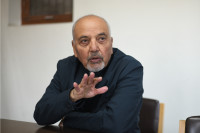
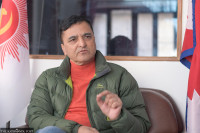
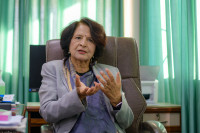

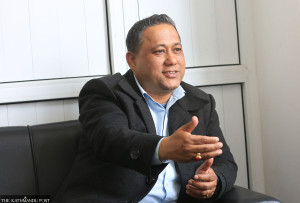



%20(1).jpg&w=300&height=200)

